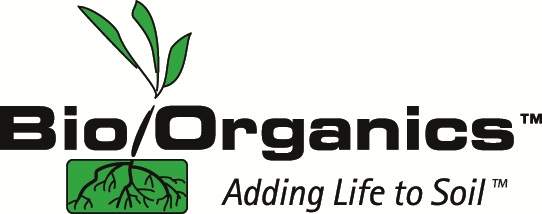These are exciting times for soil microbiologists. The value of their research on soil-dwelling microbes is beginning to be recognized. The potential usefulness of the tiny critters they have been studying for decades is finally starting to be appreciated by people outside of laboratories, plus the "Age of Soil Chemistry" from the 1950's is no longer looking like such a great concept.
It is also a confusing time for bio-scientists, who are more geared toward writing up study results with the elegant precision appropriate for publication in academic journals (motto: "eschew common words") than toward explaining product-usage details to dirt farmers.
I believe it was Tom Peters who said it is relatively easy to describe something using 500 words - just about anyone can do that. It is far more difficult to boil a product description down to 50 (or ideally 5) common words that capture the essence of the subject. Brevity and simplicity are not the usual writing orientations of the science folks, nor should they be.
This is where I believe a company such as BioOrganics fills a needed role: translating the specialized jargon and findings of academic researchers into simple terms that users can easily understand and, of course, setting up manufacturing, packaging, marketing and distribution processes that can convert scientific findings into a business.
A common misconception is that viable product ideas are rare and valuable. Actually, wonderful ideas are pretty much a dime a dozen. In our field, any halfway competent soil biologist can identify some beneficial organism or bio-stimulant that would benefit plants. As an established bio-products company, we regularly receive inquiries about introducing new biological concepts to the ag market, many of which probably have some real potential. But the hard part is finding the manpower and resources required to turn great ideas into profits. That's really, really, tough to do.
Classic marketing theory calls for identifying a problem, developing a product that solves that problem, calling the attention of potential customers tothe product, persuading those potential customers to buy (or at least try) the product, and then following through with good customer service.
I often see respected scientists spending goodly amounts of their own money to present their great product ideas to growers who do not believe they have problems, or think that a verbose brochure filled with "big plant - little plant" lab results is a complete marketing program, or neglect to set up a decent product order fulfillment system. These are bright people, but out of their normal environment. When their great-new-bio-product sales fail to materialize, they invariably seem to link up with the sort of "sales pros" that make you count your fingers after shaking hands. Great schemes are hatched (generally involving wildly-optimistic public stock offers), outside investors are milked,large sums are spent on advertising,and when still no substantial orders flow in, the parties involvedsue each other.
Growers, meanwhile, see these exciting new bio-products enter and depart the marketplace, and most simply continue to use easier-to-understand chemicals. Familiar products and trusted brand names have a strong appeal when one's livelihood is involved.
Biological methods will eventually replace the currently pre-dominant chemistry orientation for growing crops. I think that change in approach is inevitable, given soil degradation and water contamination projections. But the ag and hort marketplaces definitely need more bio-supply companies with staying power, not just wonderful new product ideas.
There are attractive business opportunities developing in the field of agricultural/ horticultural biology, and it's tempting to go chase some of them. However, I'm nearing retirement age with the battle scars of seductive great ideas all over my back. It's probably time to begin looking for younger business people with vision and energy to take BioOrganics onward and upward while I continue my search for the perfect tomato in the greenhouse.
Cheers, and good growing, friends.
Don Chapman
President, BioOrganics, Inc.
